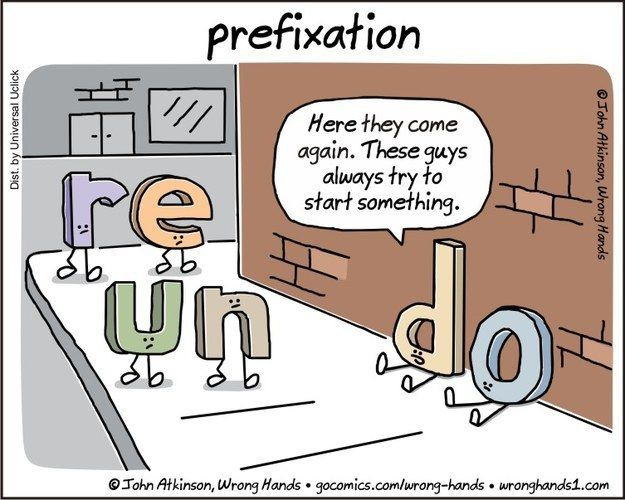Never learn one word
Using roots, suffixes, and prefixes
This is going to be a bit of a longer post. An insight into what it is like to work with me 1 on 1 and a preview of something I am developing for the premium subscribers. That said, I don’t believe in gatekeeping methodology. Implementation is a bit more difficult, but hopefully you will be able to use these examples to enhance and accelerate your second language acquisition. The basic idea is that you should never be learning one word when it comes to your study sessions. Many of the words you learn can and should be used to grow your vocabulary base.
Roots
The root of the word is the core of the word. Prefixes and suffixes alter the meanings, but without the root there would be no word. For this example piece, we are going to be using the root words: esperar, acercar, poder in Spanish and play, generate, and perceive in English.
esperar means to hope and to wait, esperanza means hope as a noun, esperanzador means hopeful
acercar means to approach or get closer to, cerca means near or close, cercano means nearby or close, cercar means to enclose
poder means to be able to as a verb, but it means power as a noun. Poderoso means powerful, poderío means might or strength.
Simply learning the Spanish prefixes and suffixes that are most common will bolster your language learning experience. Fortunately for you, I have agregated them and put them into a downloadable PDF available for FREE for all subscribers. Simply go to this page and download the Spanish Language Patterns document. Part 2 coming soon. As for English, however,
play, player, playable, playmate, replay, misplay, playful
generate, regenerate, degenerate, generation, regeneration, degeneration, generative, regenerative, degenerative, regenerately, generatively, regeneratively, degenerately
Perceive, perception, misperception, perceivable, perceivably, perceptive, perspective, prospectively, → receive, conceive,
The Latin root “ceiv-” means “to take” or “to receive”. This root is the source of many English words that convey the idea of obtaining, accepting, or perceiving something.
Here are some examples of English words derived from the “ceiv-” root:
Receive: to get or take something from someone or something
Conceive: to take in or grasp an idea, notion, or concept
Perceive: to take in or notice something through the senses
Deceive: to take advantage of someone or something by giving them false information
Transceive: to receive or take in something from a remote location (archaic)
In Latin, the root “ceiv-” is also seen in words like “cepit” (took), “cepi” (took, past participle), and “ceptum” (taken, received).
Understanding the Latin root “ceiv-” can help you decipher the meanings of these English words and expand your vocabulary. Recognizing the root’s connection to the idea of different words or concepts you are able to do this with tons of different words. That will open the door and you will be able to move on to the next expansion which are the prefixes and the suffixes.
Prefixes
Prefixes can be difficult due to the simple fact that English pulls so many words from other languages, often from a variety of linguistic families. However, your focus is not to learn them all. The only thing you really must do is train yourself to look for them as patterns. Once you do it enough, you will be able to pick things out and tie them together on your own without needing a background dissertation on the etymology.
The most prevalent prefixes to look out for in Latin based languages are:
re- = again
examples: redo, retry, restart, rejoin, reconvene, reply, etc.
dis- = not/opposite of/remove/reverse
examples: discover, disrepair, disappear, disarm, disengage, disbelief, discontent, dislike, disown, etc.
un- = not/reverse/opposite of/remove
examples: uncover, unarm, undo, uncertain, unlike, unable, unaware, unleash, etc.
ab- = away from/from
examples: absent, abduct, abuse, abnormal, etc.
Pay attention to the words in your target language and see if you can find any of these. Some of them change, but only slightly based on the alphabet. For example, in Spanish you can take the word “aparecer” which means “to appear” and add the prefix “des-” to make “desaparecer” which means “to disappear” or “cubrir” which means “to cover” and add “des-” to make “descubrir” or “discover”.
The same goes in French. To say “call” in French you say “appeler”, therefore to say “recall” you say, “rapeller”, but that is only the beginning. In order to go through all of them in every language I would need a tome. Therefore it up to you to seek out these different pieces of the language and use them to enhance and accelerate your language acquisition. As you do it more and more it will become natural so you can spend less energy actively seeking them out.
Suffixes
Suffixes operate in much the same way as prefixes, but there are quite a few cases when they can be used in conjunction with one another. These for the Spanish and French language are available to paid subscribers on the “Language Learning PDFs” page. Here are the most common in English:
-ly = creates an adverb, a word that describes a verb
examples: quietly, honestly, fortunately, unfortunately, quickly, slowly, softly, roughly, plainly, etc.
-dom = state of being
examples: freedom, kingdom, boredom
-ness = state of being
examples: heaviness, sadness, loneliness, rudeness, testiness, etc.
-ment = condition of
examples: argument, endorsement, punishment, establishment, refinement, confinement, etc.
-ize = become
examples: civilize, realize, humanize, actualize, socialize, valorize, theorize, hypothesize, etc.
Again, this is far from all of them. If there is interest I will go through more and dive deeper into how to use them across languages, but as a general concept this should be enough to get you started. I encourage you to spend time looking for these as you read and try to find out just how many ways you can use this to propel yourself forward. Sometimes treating language like math can make it more consumable, especially at the beginning.
Conclusion
It is not necessarily important that you do this with every word. In fact, it almost certainly will not work with every single word. However, if you can remember to ask yourself, “how might this word be altered”, then you will end up learning more words and recognizing more patterns that will help everything move faster. Take time to ensure that every word you see is not the only word you learn and you will begin speaking far faster than you expect.
As we discuss often around here, creating is vital in second language acquisition. Speaking and practicing with written language will help you in accelerating and enhancing your language learning process, so start having conversations as early on as possible. It will be difficult, but you can do difficult things and be great. So go do some difficult things and become great.
Requests
If you have anything you would like covered you can reach out to me on X, Instagram, or at odin@secondlanguagestrategies.com.
Additional Resources
Don't want to spend time playing catch up? Pick up the 3 Months to Conversational book now available on Amazon! 3 Months to Conversational
For more long form content be sure to check out the website!
Subscribe for new content on YouTube and TikTok!
Learning Spanish? We have begun aggregating resources in you Spanish Resource Newsletter!
Don't forget to pick up your very own French Language Logbook or Spanish Language Logbook!





